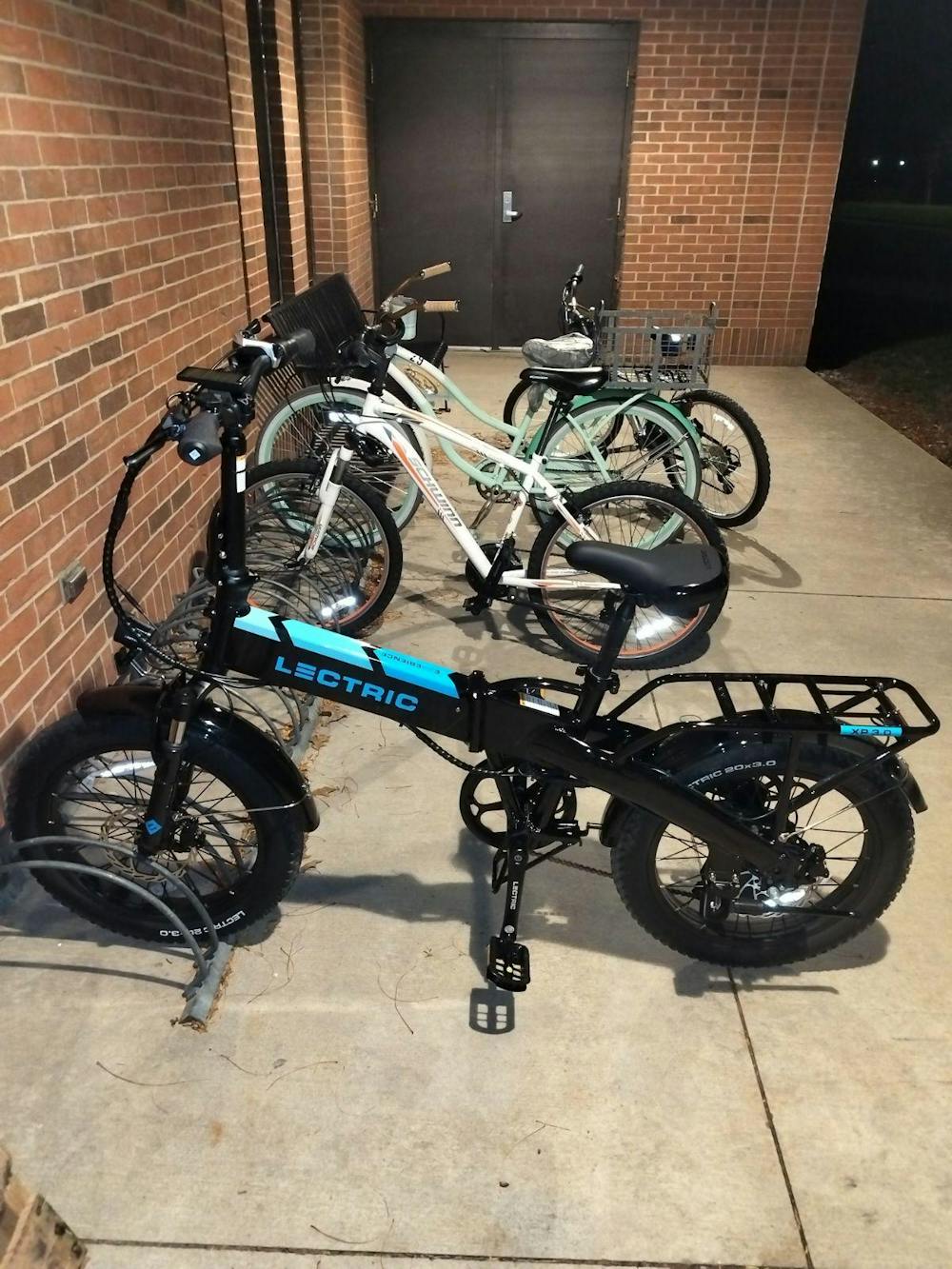“This bike was almost stolen; think about that.”
I found these words posted on my bike one evening, left anonymously by someone aware of Taylor University’s infamous open secret: bike theft.
Despite intentional efforts at community, bike theft has a long history on campus, even gaining a nickname — “borrowing.”
“It’s the thing that people always talk about: You can leave your $2,000 MacBook sitting on a table, no one’s going to touch it, but if you leave your bike unlocked, it’s gone,” David Neel, director of Samuel Morris Hall, said.
As an undergraduate, Neel knew many stories of friends who had their bikes stolen.
Bikes were even stolen from himself and loved ones.
As a former bike mechanic, Neel attributes the normalization of bike theft to misunderstanding bike cost. A cheap Walmart bike is around $200, but some bikes are between $2,000 to $5,000, he said.
Fortunately, there isn’t a great number of reported bike thefts. Jeff Wallace, Taylor’s chief of police, said he can count on one hand in his 21 years at Taylor the number of times that bikes weren’t recovered.
However, this does not account for unreported theft.
“It’s like any kind of crime,” Wallace said. “If somebody decides it’s not important enough for them to report, we can’t document it or look into it.”
Wallace emphasized that bike theft disrespects people and their property, and added that true community cannot form without trust since trust develops relationships.
Because bike theft is a crime of convenience stemming from selfish motivation, it can be curtailed using deterrents such as bike locks, Wallace said.
“I think there’s also an educational piece on the other side of that: Deter, but then educate and have more voice in it, whether it’s students, faculty, or staff, because it (bike theft) is not one of those things we should just say exists and then ignore,” he said.
The most recent student campaign against bike theft was The Great Bike Quest, led by junior Marco Aguirre and senior Josh Brown. Their goal was to set up a huge event in which students, whether they lost their bikes or not, would venture across campus together to find every missing bike.
“I think it’s perfectly acceptable (to borrow bikes) from friends who are asked prior to borrowing,” Aguirre said.
He said that bike borrowing can help encourage community on Taylor’s campus, adding that if people expect others to have the spirit to share their bikes, they should also have the spirit to share the bikes back.
Neel said that viewing bikes as personal property would help people care for one another as brothers and sisters in Christ.
“I think if people would be made aware of the undue pain or stress (bike theft) creates for people, (that’s) gonna help people to maybe think twice about doing stuff like this,” he said. “These (people) are individuals, and (some) are probably counting on that bike being there.”
To secure bikes, Neel mentioned scratching or taping the owner’s name onto the bike, putting the owner’s name inside the seat post, locking the front and rear wheels with bike locks or taking the seat off.
Wallace said that we can help keep others from stumbling spiritually by locking up personal items, cars and rooms. He also said that victims should report crimes so that the Taylor Police Department can help.
Brown encouraged students to ask about where stolen bikes are located.
“What I discovered freshman year is that apparently there’s a big room in Sammy where they keep a bunch of stuff, and apparently a bunch of missing bikes were there,” he said. “A lot of people don’t know about it.”




